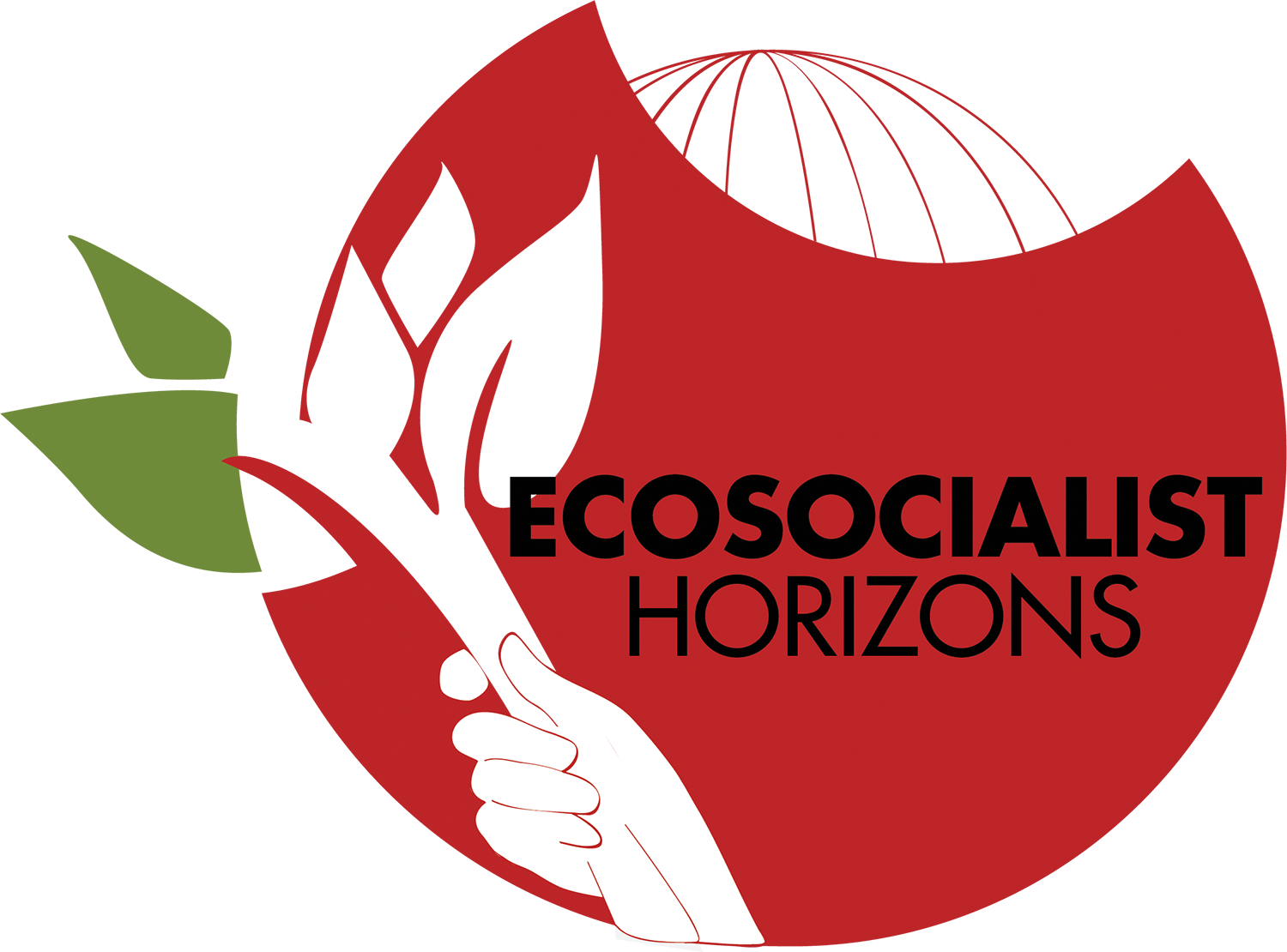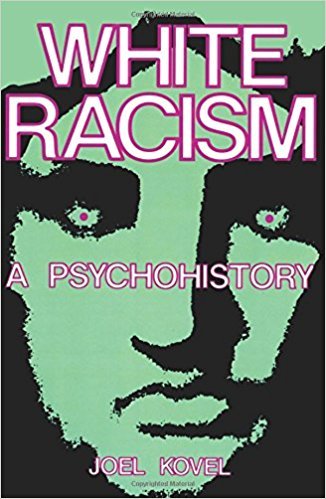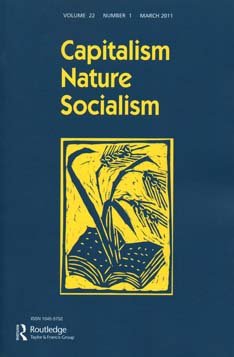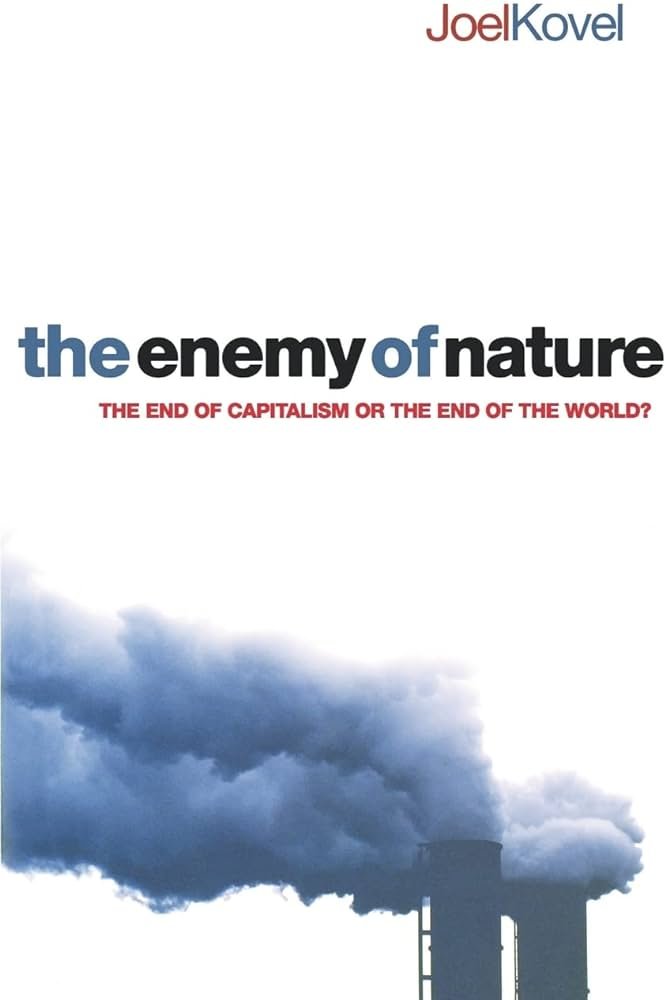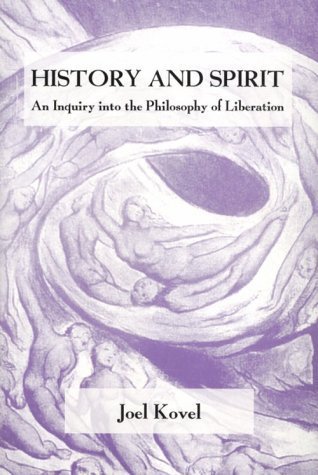Remembering Comrade Joel Kovel
by Salvatore Engel-DiMauro
Welcome to Golgonooza (1), Joel Stephen Kovel (27 August 1936 – 30 April 2018)
Losing a dear friend is scarring and leaves an unfillable void. Joel was (or, rather, is, for he will live among us in other ways) an open, thorough, and independent thinker; an ecosocialist luminary; a fountain of practicable political ideas; a committed Marxist Christian revolutionary; an anti-Zionist activist; and among the most sensitive, understanding, perspicacious, and generous people I have ever had the good fortune of knowing. Joel met me at the Marxism2000 conference, at the University of Massachusetts-Amherst, organised by the Rethinking Marxism Editorial Board. That is to say, he actively sought out my session and witnessed my paper presentation. He must have thought me worthwhile meeting because he introduced himself in what I came to know as his usual unassuming, benevolence-radiating manner. He invited me to join the New York Editorial Group of Capitalism Nature Socialism, as recounted elsewhere (Engel-Di Mauro 2014, 3; as corrigendum, it was in November 2000). I had just completed my PhD and had begun consciously embarking on the arduous road of recovery from a process of manufacturing competitive, marketable subjects reduced to abstruse scholasticism, unable to communicate even the plainest ideas to an audience wider than a handful of experts. His invitation to a project much larger—and definitely more meaningful— than an academic undertaking was therefore irresistible. He had not yet taken up editorial responsibility for Capitalism Nature Socialism, but since the early 1990s he had become a prominent contributor in the development and refinement of, among other things, red-green perspectives, re-assessments of Marx relative to ecological perspectives, and dialectics in terms of praxis.
Joel was a prolific writer with a capacious mind and with an unquenchable thirst for learning. Intellectual complacency could not have been further from his state of being. As he put it in his own words, “Nothing, you see, will ever be good enough for this unquiet soul” (Kovel 2017, 35). And an unquiet soul he certainly was. Emerging from a background in the biophysical sciences, he developed a sophisticated command of social theory and his work encompassed the most disparate range of questions and fields of knowledge. From Freudian psychiatry he had moved by the 1960s to issues of white racism intrinsic to western societies, then turning his attention to issues of militarism and nuclear armament development, Sandinista Nicaragua, and the political persecution of leftists in the US.
However, a major change, aside from his later religious epiphany, occurred that shaped his political commitment until his departure from this world. By 1988 and coinciding with the founding of this journal, he had arrived at a moment of “Climate Revelation” upon reading of human-induced global warming in the scientific literature (Kovel 2017, 255). It was only a matter of time before he would reach out to Capitalism Nature Socialism. He did so by the early 1990s and this journal became a main platform for his work on Marxism and ecology (e.g., Kovel 1995). In Capitalism Nature Socialism he had found a (temporary) home, after a much vexed intellectual journey that had eventually led him away from the commodified, alienating, and sometimes even life-destroying world of institutional psychiatry and medicine. Through the journal, he would engage in frank and constructive debate with authors and thereby also develop and articulate such key concepts and theories as prefiguration (drawing from anarchism; Kovel 2001), Marxist ecology (Kovel 2011), and intrinsic value (Kovel 2014).
Over seventeen years of sometimes intense collaboration followed our first encounter, punctuated by life-changing discussions and joint political actions. Much of our work initially focused on the management of this journal, especially when Joel assumed the role of Editor-in-Chief in 2003, due to James O’Connor’s deteriorating health. Our temporary physical distance from each other (I had taken up a post in Stevens Point, Wisconsin, until 2005) proved to be immaterial and I felt honoured when he asked me to mind the journal during his South African sojourn. It was the start of a gradual preparatory process culminating in my current role in the journal, after my eventual return to the US Northeast. During the period of his tenure (2003-2012), Joel, in spite of his academic marginalisation, expanded the remit of the journal, moulding it into a forum where ecosocialism could be expressly developed as a priority. This explicit political positioning was an important turning point. It is thanks to Joel’s efforts that we now have a scholarly ecosocialist journal, apparently the only of its kind (I hope to be corrected). But this turn did not entail any narrowing of scope or perspective. In fact, and in O’Connor’s spirit, it was precisely the opposite. Joel always insisted on ecumenicalism and he was especially adamant in giving space and autonomy to ecofeminist scholars and activists as well as the perspectives of state-free peoples. This was also consistently conveyed in his many writings regaling the pages of this journal.
The journal was only one aspect of our relationship, though. Joel increasingly became a mentor to me (and many others), intellectually and emotively. Intellectually, he showed me ways of reconciling disparate socialist and feminist politics and frameworks into the sort of ecumenical ecosocialism that happily coincided with my proclivities for seeking interconnections and bridges. Reading his works enlightened me to other lenses through which to read Marx’s works, lenses that open up possibilities and remain faithful to a historical materialist dialectics. His insistence on the crucial importance of gendered and racialised power relations deeply resonated with me. But Joel was also a superb writer, whose style I can only hope to be able even just to approximate, one day. One of the many memorable quotes from him is the following:
“In capitalism, having masters being: you “are” nothing unless you “have” something, and if you have everything, like Donald Trump, you can be (and do) anything.” (Kovel 1991, 216)
This about Trump, stated so long ago, is now at once bitterly hilarious, inadvertently prescient, and terribly tragic. I miss his wit, his daring, his sharpness. Emotively, then, aside from giving some brilliant laughs, he helped me overcome fears of writing (writing was among his predilections) by his sheer example. I remain in awe at how he could compose widely encompassing, deeply-thought, eye-opening manuscripts within a few days. More importantly, he facilitated my gaining more political, not just intellectual self-confidence. He also helped re-open the doors for me to retrieve spiritual understandings of the world that I had long suppressed and feared. The process ironically eventuated into the reinvigoration of my atheism, but endowed such atheism with greater openness and receptivity towards other ways of being and understanding, or so I hope, coupled with a sharper, more dialectical sensibility regarding the self (more on this below).
We had surprisingly much in common, despite the chasm between us in cultural background and life experiences. Aside from more or less converging intellectually, we both found it important to widen the modes of expression in the journal, including by means of poetry. We shared our deep respect for state-free peoples and just as deep disgust for settler colonialism and its apologist ideologies, including Zionism. The issue of Zionism was particularly pressing for Joel as part of hastening ecosocialism. He viewed, rightly, the Israeli state as a state gone terribly wrong, with its inherently racist (if not genocidal) formative underpinnings. The solution lay in its replacement with a substantively democratic one-state solution (Kovel 2007). For this, he was viciously attacked and castigated, especially in the US, where his tireless efforts at combating Zionism continue to be censured even posthumously (witness his obituary in The New York Times, where his critiques of Zionism are virtually omitted).
Our substantive overlaps in political philosophy also led to several efforts that have positively shaped my life irrevocably. This includes involvement in the, alas, largely defunct Ecosocialist International Network, which enabled me to understand the limits of what is still much too fashionable in movement organising (social media based networks and horizontality without much accountability), especially in liberal democracies. Then, after a lunch meeting in Woodstock (NY) on a very sunny summer day, Joel discussed with me the idea of founding an ecosocialist organisation in the US. It was to be Ecosocialist Horizons, officially established in 2011, with the crucial assistance of Deborah Engel-Di Mauro and the late William Schaap. Quickly afterwards, Quincy Saul, often with Kanya D’Almeida’s help, became central to raising funds and organising ecosocialist convergences that have helped solidify the organisation and diffuse ecosocialist ideas, including Joel’s, far and wide. Thanks to Joel, I had the great honour of meeting Quincy and Kanya, among many other fine comrades, when he introduced me to Scientific Soul Sessions, a perspective-expanding, life-affirming Afro-Asian Marxist feminist ecosocialist collective led by the late Fred Ho and largely concentrated on national self-determination struggles and the task of freeing US political prisoners.(2) Among the major outcomes were magnifying existing efforts at sensitising the public on political prisoners, helping the freeing of some inmates from the blatant torture of solitary confinement, and the adoption by many inmates in Pennsylvania prisons of Joel’s The Enemy of Nature as a primary source of reading. Quincy’s and Joel’s efforts are among those leading to another breakthrough, the founding of the First Ecosocialist International in Veroes, Yaracuy, Venezuela, in 2017. We can only wish that Joel could have been there with us on that wonderful, celebratory moment. And these are only the more salient examples of what Joel enabled me to accomplish with him.
Joel’s worldview was very close to mine, but we also had major differences. It would be odd were this not to be so. One issue was the notion of intrinsic value, as a way to wrest ourselves away from capitalist logic, which is based on both use- and exchange-value. In Joel’s words,
“Values do not exist in nature but in the mind of a natural creature. Let us add to this mind or, to be more exact, strengthen it, by recognizing an I-V [intrinsic value] that is already present and allow it to enter into the interplay between U-V [use-value] and X-V [exchange-value] … I would define I-V as an assertion that we should value nature for itself, irrespective of what we would do to it—value it intrinsically and thereby as a function of its inherent right—a right which must be fought for and so is established as a dynamic factor in the struggle to undo the curse of accumulation.” (Kovel 2014, 18)
Some might argue against intrinsic value, but this would also miss the point, in some ways. Joel’s search for an alternative value system needs to be grounded in an overall attempt to bridge Marx’s ideas about the false spirituality proffered through capitalist relations with the value systems and the sort of spirituality frequent in state-free (or Indigenous Peoples’) worldviews (or the wider notion of cosmovisions). Intrinsic value is one way of reconciling Marxism with spirituality in general and with the myriad cosmovisions of many peoples worldwide. On account of such major political ramifications, the question of intrinsic value cannot be brushed aside so easily. Joel is one of those thinkers we must thank at the very least for insisting on bringing the problem to our attention.
Another major point of departure from Joel is with respect to my views on religion, which is shared likely by most leftists, Marxist and otherwise. The matter, however, has never been terribly simple or resolvable by alluding to mind-altering substances. As Marxist activist and psychoanalyst Ian Parker has pointed out, under the keyword ‘Spirituality’,
“The journey [to Christianity, such as Joel’s] does not necessarily lead away from revolutionary struggle., but can deepen it, can deepen it even where there are some dramatic conversion from one ‘religion’ to another, conversion that enable the spiritual suffering to turn into protest.” (Parker 2017)
Though I do not share (or even really grasp) Joel’s spiritual affinity with Christ and much less comprehend his conversion to Episcopalian Christianity in 2012, I do, thanks to him, appreciate the role spirituality has in a transition to ecosocialism. More than this, Joel taught me to fear not my own spirituality and, rather than repress it, to embrace it as a feeling of being beyond the self, as a positive way of relating to others (humans or not) and thereby help build ecosocialist sensibility. After all, the majority of people worldwide show explicit spiritual inclinations often articulated by way of religion and specifically monotheism. This is emphatically not to my liking, but the enormous weight of such a fact must be confronted and addressed constructively, not dismissively.
But this implies a kind of instrumentalism on my part. Joel felt his conversion deeply and I could only respect his courageous decision. A major factor was his resolve to emancipate himself from Judaism, with its tribalism and its foundational and self-congratulatory notion of chosen people. In this, Jesus inspired Joel not only as a historical revolutionary, but also as a Jew who was able to overcome his Jewishness. The conversion must be situated in Joel’s social context, one that was highly damaging to his spirit. It also cannot be underlined enough that he identified as a Marxist to the end (Kovel 2017, 173). Christianity for him was scarcely oppositional to Marxism. It meant selfless love, a state of being foundationally inimical to any religious hierarchies and apologetics for social inequalities. In the example of Jesus lay, for Joel, the possibility of dissolving the egoic self into universal humanity, and thereby the universe, with human nature becoming intimately felt as part of nature. This is the overcoming of the multiple dimensions of capitalist alienation Marx wrote about, and, Joel would say, the notion of alienation and its relationship to spirituality is an important and downplayed part of Marx’s thought. Joel therefore thought such principles should be the basis for redirecting Marxism (Kovel 2017, 194), especially as alienation is directly linked to the destruction of spirit (Kovel 1991, 3).
On a couple of occasions, Joel confided to me his experience of rapture (an example of which is to some extent recounted in Kovel 2017, 182), of an extra-corporeal feeling of great intensity inexplicable by standard scientific accounts. As a psychiatrist, he knew well what such episodes meant and implied. The background to his late-life transition is complex, but it was already laid out by the late 1970s and concretised by the late 1980s, as he found his spiritual calling in the Liberation Theology of Sandinista Nicaragua. His conclusions were formally explicated in 1991 in his History and Spirit, a most remarkable volume where he attempts to address spirituality and even the possibility of a supernatural being in ways that avoid degenerating into theocracy or genocidal nationalism. Whether the argument is convincing or not is beside the point. What needs to be appreciated is that Joel pursued clarity by “taking an argument to the limit, neither fearing [his] own conclusions nor any conflict with authority” (Kovel 2017, 133). One may disagree with his conclusions, but it is nevertheless important to come to terms with the spirituality that millions of people feel in one way or another, including Joel’s. Without such a grasp and the development of political strategies to address spirituality in life-affirming capitalism-overcoming ways, ecosocialist revolutionary potentials will be scuppered.
There is much that I and many others owe Joel and much that can, should, and doubtless will be written in praise of his exemplary life, filled with positive contributions to other people’s lives and with many intellectual and political accomplishments. Yet it is impossible not to end my all too brief homage to Joel without quoting William Blake, Joel’s favourite poet. If the reader may indulge me, I would then like to celebrate Joel and start healing my grief over his passing by sharing with you the final two stanzas from Blake’s On Another’s Sorrow (1789):
Think not thou canst sigh a sigh,
And thy Maker is not by;
Think not thou canst weep a tear,
And thy Maker is not near.
O! He gives to us His joy
That our grief He may destroy;
Till our grief is fled and gone
He doth sit by us and moan.
Ecosocialists such as I may have lost the Lost Traveller, but certainly not his Dream.
Endnotes:
(1) Golgonooza was poet William Blake’s mythical city of art and science. I fancy Joel residing in such a place of marvel and intellectual fulfilment, alongside Los, the prophet city-smith.
(2) Out of this came the co-publication by Ecosocialist Horizons and PM Press of the collected writings—edited by Fred Ho and Quincy Saul—of Maroon Shoatz, imprisoned Black Liberation Army General, tortured with solitary confinement for 33 years, arrested on spurious charges that would not have held up in any serious courtroom (Ho and Saul 2013).
References
Engel-Di Mauro, Salvatore. 2014. “A More than Twenty-Fifth Anniversary for More than a Journal.” Capitalism Nature Socialism 25 (1): 1-9.
Ho, Fred, and Quincy Saul, eds. 2013. Maroon the Implacable. The Collected Writings of Russell Maroon Shoatz. Oakland: PM Press and Ecosocialist horizons.
Kovel, Joel. 1991. History and Spirit. An Inquiry into the Philosophy of Liberation. Boston: Beacon Press.
Kovel, Joel. 1995. “Ecological Marxism and Dialectic.” Capitalism Nature Socialism 6 (4): 31-50.
Kovel, Joel. 2001. The Enemy of Nature: The End of Capitalism or the End of the World? London: Zed Books.
Kovel, Joel. 2007. Overcoming Zionism: Creating a Single Democratic State in Israel/Palestine. London: Pluto Press.
Kovel, Joel. 2011. “On Marx and Ecology.” Capitalism Nature Socialism 22 (1): 4-17.
Kovel, Joel. 2014. “Ecosocialism as a Human Phenomenon.” Capitalism Nature Socialism 25 (1): 10-23.
Kovel, Joel. 2017. The Lost Traveller’s Dream. A Memoir. New York: Autonomedia.
Parker, Ian. 2017. Revolutionary Keywords for a New Left. Alresford: Zero Books.
